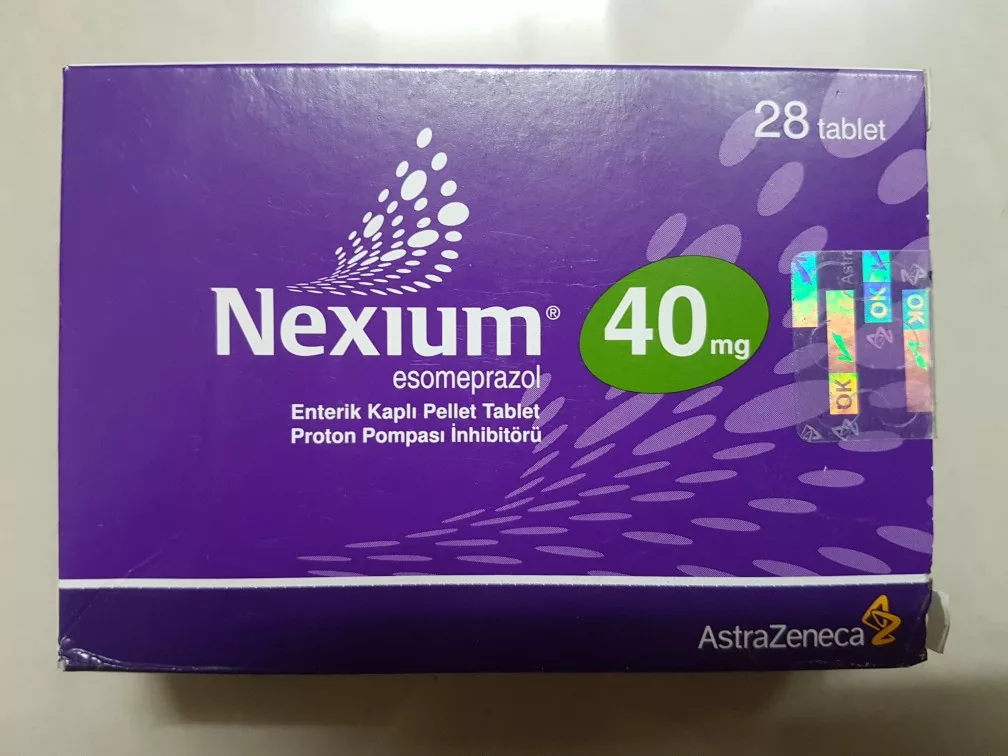Nexium - Product Description
Overview:
Nexium (esomeprazole) is a widely used proton pump inhibitor (PPI) that effectively decreases stomach acid production. It is primarily indicated for the treatment of acid-related gastrointestinal disorders such as gastroesophageal reflux disease (GERD), erosive esophagitis, and peptic ulcer disease. By blocking the enzyme responsible for acid secretion in the stomach, Nexium provides rapid and sustained relief from symptoms like heartburn, regurgitation, and discomfort, and promotes the healing of acid-related damage to the digestive tract.
Indications:
Nexium is indicated for:
- Treatment and long-term management of GERD and associated symptoms
- Healing and prevention of erosive esophagitis
- Prevention and treatment of gastric and duodenal ulcers, including those caused by H. pylori infection or NSAID use
- Management of conditions involving excessive stomach acid, such as Zollinger-Ellison syndrome
How to Use:
Nexium is available in delayed-release capsules, tablets, and granules for oral suspension. The usual adult dose for GERD is 20-40 mg once daily, at least one hour before meals. For ulcer healing, the dosage and duration may vary. It is essential to follow your healthcare provider’s instructions regarding the exact dosage and duration of use. Do not crush or chew the tablets or capsules; swallow them whole with water. If you have trouble swallowing, the capsule contents can be mixed with applesauce.
Advantages:
Nexium offers several advantages as a treatment for acid-related disorders. It provides quick and effective relief from heartburn and other GERD symptoms, promotes the healing of damaged tissues in the esophagus and stomach, and helps prevent recurrence of ulcers. Nexium is also beneficial in reducing the risk of gastrointestinal bleeding in patients taking NSAIDs. With a proven safety profile, Nexium is suitable for both short-term and long-term use under medical supervision.
Conclusion:
Nexium is an effective and well-tolerated option for the management of acid-related gastrointestinal conditions, from GERD and erosive esophagitis to peptic ulcers. Its ability to significantly reduce stomach acid production helps relieve symptoms, heal existing damage, and prevent further complications. Nexium remains a trusted choice for both patients and healthcare providers in the treatment of acid reflux and related conditions.
Composition:
Each Nexium tablet or capsule contains esomeprazole magnesium as the active ingredient, equivalent to 20 mg or 40 mg of esomeprazole. Inactive ingredients may include glyceryl monostearate, hydroxypropyl cellulose, hypromellose, iron oxide, magnesium stearate, methacrylic acid copolymer, microcrystalline cellulose, and titanium dioxide.
Note:
Nexium should not be used in patients with known hypersensitivity to esomeprazole or other PPIs. It is important to consult a healthcare provider before using Nexium, especially for long-term treatment, as prolonged use may increase the risk of fractures, low magnesium levels, and Clostridium difficile infection. Common side effects may include headache, diarrhea, nausea, and abdominal pain.






